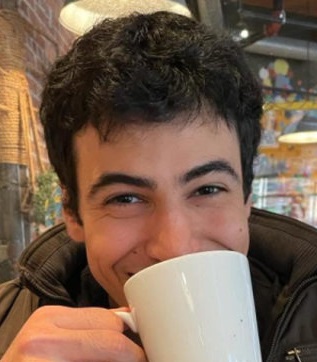


Cornell University TREESPEAR Graduate Research Associate Michael Meneses presented his research on organic farming transitions at the PhD Excellence Initiative Annual Summer Research Workshop at New York University.
Since 2014, with support from the Alfred P. Sloan Foundation and NYU Stern, the PhD Excellence Initiative has worked to address the critical problem of underrepresentation of minorities in the field of economics. With additional support from the Federal Reserve Bank of New York, the 9th Annual Research Workshop brought together a select group of inspiring economic scholars at all stages of their careers for a day of inspiring student and faculty research presentations, interaction around topics and pathways in the profession, and casual collegiality.
The PhD Excellence Initiative Annual Summer Research Workshop is an annual summer workshop that seeks to provide PhD Excellence Initiative pre-doctoral fellows with an opportunity to hear about research conducted by both early and late stage researchers coming from under represented backgrounds. The workshop also serves as an opportunity for researchers from under represented backgrounds to share and receive feedback on their work. There were a total of 5 presentations, two by current doctoral students, two by assistant professors, and one by a full professor. Michael Meneses was one of the two current doctoral students selected to present at this workshop.
For his Ph.D. research, Michael is combining his undergraduate training in the natural sciences and his graduate training in economics to tackle important issues in agriculture, natural resources, and economic development. In particular, Michael is analyzing the dynamic decision-making behavior of farmers and agricultural producers; how institutions and policies affect this behavior and its outcome; and how to design and improve institutions and policies so as to increase the net benefits to society resulting from the behavior of farmers and producers. His research uses sophisticated and frontier theoretical and empirical methods in natural resource economics, optimal control theory, dynamic programming, and structural econometrics; and is informed by frontier discoveries in the natural sciences, including crop and soil science.
In the organic farming transitions research that Michael presented at the PhD Excellence Initiative, Michael combines insights from economics and the natural sciences to study and inform farmer transitions from conventional to organic management. Soil microbes benefit agricultural production by enhancing crop nutrient use, stress tolerance, and pest resistance. New insights from soil science show that the use of synthetic compounds (e.g., synthetic fertilizers and pesticides) can be harmful to these beneficial soil microbes. Thus, while using synthetic fertilizers and pesticides may have the initial effect of increasing crop yields, over time these synthetic compounds exert an indirect negative effect on crop yields through their negative effects on soil health. This insight has implications for a farmer's optimal synthetic fertilizer and pesticide strategy, and for whether and how a farmer should transition from conventional to organic farming.
Michael is developing a dynamic bio-economic model of a farmer's decisions regarding the use of synthetic compounds and the transition from conventional to organic management. His model of crop production accounts for the newly documented feedback effects between the use of these synthetic compounds and soil health, pest resistance, and crop yields. He will use his model to help farmers improve decision-making around synthetic compound use and organic production, with the goal of improving soil bacteria stewardship, crop yields, farmer profits, agricultural sustainability, greenhouse gas mitigation, biodiversity, resilience of the organic farming system, the protection of water and other resources, the provision of ecosystem services, and public and environmental health. The results of this project are likely to be applicable to agricultural commodities generally.
For further reading: